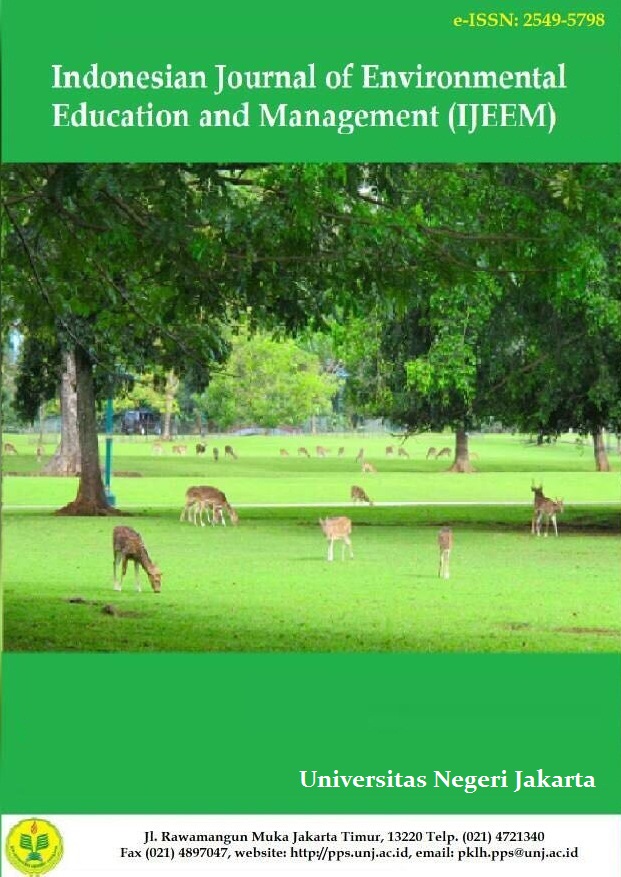Pengaruh Locus of Control dan Kepribadian (Personality) Terhadap Keinginan Untuk Bertindak (Intention to Act) Siswa
Abstract
Environmental problems cause threats to the environment, such as global warming, urban air pollution, clean water crises, environmental noise and loss of biodiversity. This problem is caused by human behavior. Resolution of environmental problems can be done by community or private components, one component of community is students. The effort that can be done is to increase intention to act on the environment. This study aims to determine the effect of locus of control and personality on students' intention to act. Research conducted at SMA Negeri 31 Jakarta on the Semester I of the 2019/2020 school year. The method used is the survey with quantitative-causal causal approach and path analysis. The samples used were 99 students of class XI IPA. The reliability coefficient of Locus of control (X1) is 0.680, Personality (X2) is 0.759, and Intention to Act (X3) is 0.878. Based on the results, it can be concluded that personality is not good as a mediator variable between the locus of control and intention to act.
Keywords: Students, locus of control, personality, intention to act, path analysis





